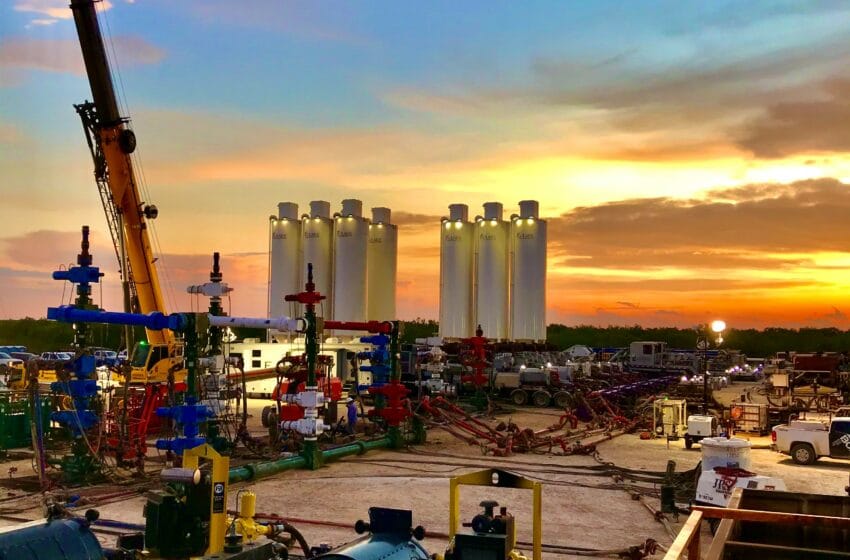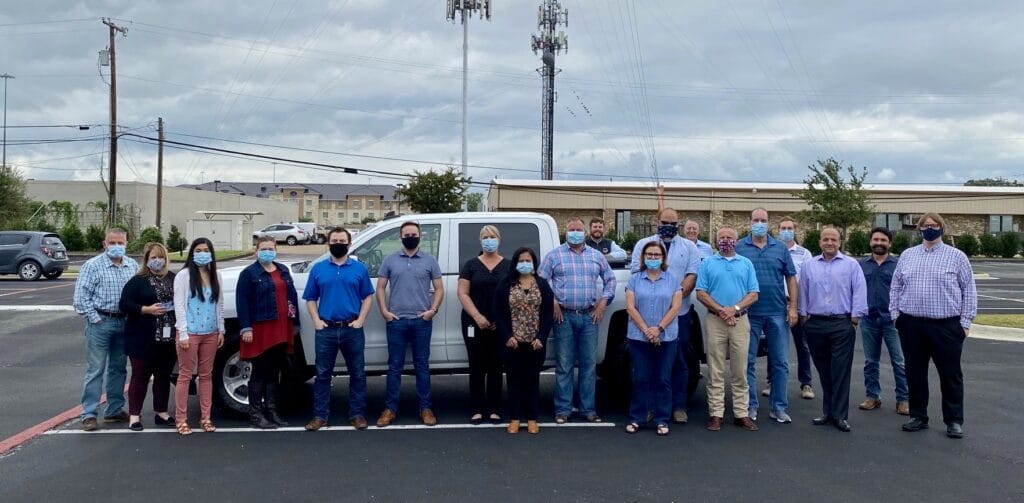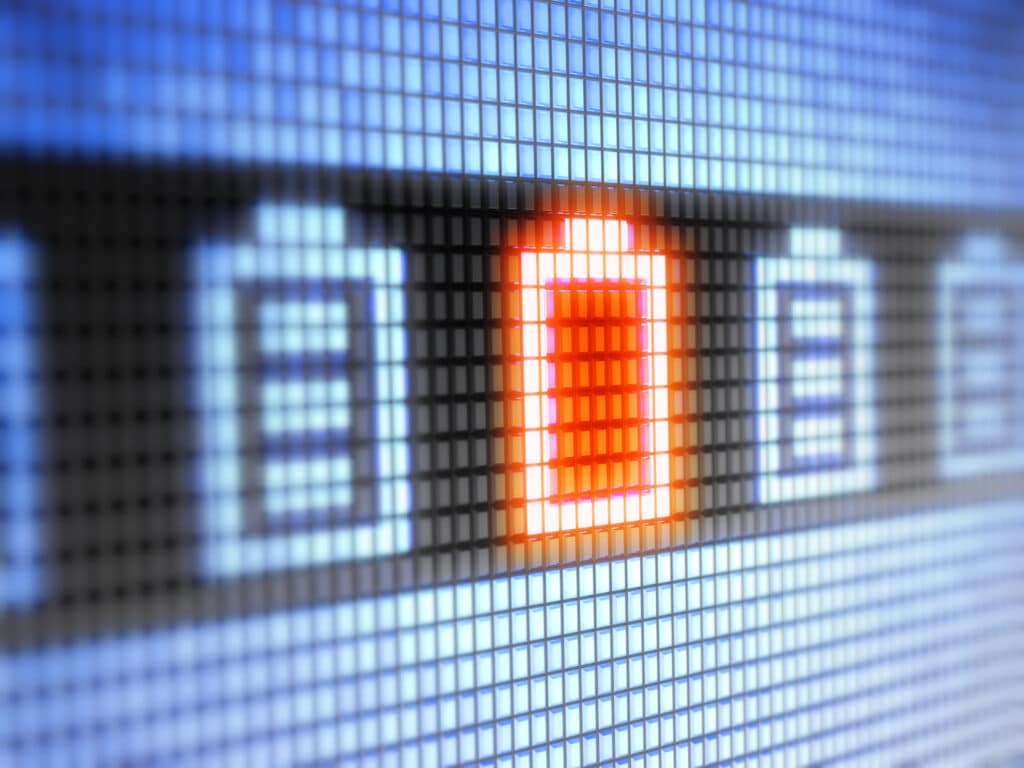Energy & Empathy: A Conversation with U.S. Energy CEO Jordan Jayson

U.S. Energy CEO Jordan Jayson on the power of empathy, his pandemic playbook, and what drew his firm from New York to DFW
Jordan Jayson spent 10 years managing portfolios and trading on behalf of clients—first on Wall Street and then in London—prior to transitioning into U.S. Energy Development Corporation, which was founded by his parents in 1980. Jayson brought with him a respect for disciplined investing, which has served U.S. Energy’s clients well. Today, the firm provides direct energy investment opportunities to individual investors and institutions alike. Throughout its 40-year history, U.S. Energy has invested in, operated, and/or drilled more than 2,400 wells across the US and Canada.
Jayson stepped in as CEO of the firm in 2014. Since that time he has had to manage the loss of his parents—the company’s founders—and two collapses in oil prices. We asked him about his leadership journey so far, and how a sense of empathy guides him in work and life.

Texas CEO: Shakespeare once said, “What’s in a name?” I think there’s a lot in the name U.S. Energy. It’s very timeless. What was the origin?
Jordan Jayson: My mother and father founded the company under that name in 1980 in Buffalo, New York, but the company operated many years prior. Around late 1975, my father stepped off an Allegheny Air Flight while they were taking the old name down and putting up the new name, USAir [later US Airways]. He said, “Wow, that’s an interesting name for an airline.” He called up his attorney and said, “Is ‘U.S. Energy’ available?” And thus the story began.
Over the past 40 years, we’ve really strengthened that brand and continue to build upon it. We’ve had to deal with various trademark rules and regulations to retain brand strength, but it’s served the company well. The name meant a lot to my mom and dad and I think they would be proud of the tradition we have carried on.
The name has also been strategically important because of how inclusive it is. We don’t think of ourselves as just an upstream oil and gas company. We look at investing in asset classes ranging from solar farms to chemical companies to filling stations. We’re constantly thinking about how we want to evolve. The name U.S. Energy allows us the flexibility to invest anywhere within the energy industry. We can look upstream, midstream, or downstream and decide where we want to be in three, five, or ten years.
Texas CEO: How much do you invest in green energy, renewables, and so on?
Jayson: ESG [environmental, social, and governance] has been a core focus of ours for several years. Over the past 12 years that I’ve been with U.S. Energy, we have looked at renewable projects on an annual basis and have made some small investments. We’re looking to expand our renewable investments over the next several years, including solar projects here in Texas.
Texas CEO: U.S. Energy relocated from Buffalo to Dallas-Fort Worth. How did you end up coming here?
Jayson: My parents, who were owner-operators of the firm, passed away in 2014 within a very short timeframe of one another. At that point we had acquired numerous assets in Texas and Oklahoma, and some assets in New Mexico. We ultimately felt that moving to DFW was the best choice for our families and the company. We wanted a similar-sized city to Buffalo. I really enjoyed the spirit and culture of Fort Worth. And it’s really cool to be part of an economy that’s growing this robustly. As you drive around Texas, there are cranes everywhere. I can’t remember the last time I saw a new building going up in Buffalo.
Texas CEO: What is it like being a second-generation CEO? That’s a unique experience.
Jayson: It has its challenges. There was the cultural transition of the company from two owner-operators to the second generation. It took a lot of help from people and a lot of communication. My parents were great communicators, but I’ve tried to add more structure around how I communicate with the team. We now have quarterly town halls, for example. I’m very sensitive to the fact that we have employees who have been here for over 20 years. Each person who has stepped into U.S. Energy, whether it was me or my parents leading at the time, helped get us where we are today. At town halls, I’m very thoughtful about thanking not just our current employees but the hundreds of other employees who helped us get here. Keeping that continuity is very important to me.
It was also a very quick transition. My parents passed away about nine months after I was promoted to CEO. We went from two people who both worked 12 to 15 hours a day in the business to just me in the role. Plus, the company was in crisis mode due to commodity prices; in a year, we saw oil drop from $100 a barrel to $35 a barrel. It was a real trial by fire.
Luckily, having a great team in place and a trusted external network I could consult for advice, we were able to navigate that period together. I’m a big fan of reaching out and leveraging your network in times of crisis.
I called other leaders to say, “This is what I’m going through. What tips do you have?” I made myself very vulnerable to people. They knew I authentically cared about the success of this business and wanted to see it evolve and grow. Those networks embraced me. I listened and absorbed, then implemented the things that seemed most applicable to the situation.
I’m glad that early on I recognized I needed help and opened myself to it. As CEOs, we will always need help as we come across different situations and as circumstances evolve. It would be nice if we all had a roadmap, but it’s a unique journey for everyone. We have to embrace it and enjoy it.
Texas CEO: What was your and U.S. Energy’s experience through the COVID-19 pandemic? The energy sector certainly didn’t have it easy in 2020.
Jayson: 2020 marked U.S. Energy’s 40th anniversary. Given the timing, we navigated that milestone versus celebrating it. Fortunately, we had a playbook to follow from the previous crisis. Over 2014 and 2015, when I stepped up as a first-time CEO as oil prices plummeted, we had to rightsize our balance sheet and reduce compensation to remain solvent. But we learned a lot.
As 2020 became rough, we pulled out those lessons from 2015. Instead of waiting six to nine months to take action, we pulled certain levers within a month of COVID. The executive management team immediately agreed to reduce their wages, along with other costs, so we could remain solvent. I give great credit to them, our board of directors, and everyone at U.S. Energy. What we’d been through before really made us into an aggregation of resilient people. We were able to pull together quickly, without any drama, for the longevity of the company. Fortunately, we’ve now restored wages to what they were pre-COVID.
Texas CEO: Can you tell readers about a specific leadership lesson you learned over the most recent challenge?
Jayson: I will say that one of my greatest mistakes was that at times I tried to overly build consensus within the firm. Through my leadership evolution, I’ve learned that sometimes it’s OK to make decisions without having everybody on board. And you’re never going to make everyone happy, but you need to make progress. In most circumstances, you’re not going to have 100 percent consensus, but you still need to take action, especially during periods like 2015 or 2020.
Texas CEO: Do you have any other advice for current or aspiring CEOs in Texas?
Jayson: I really encourage people to embrace continuing education. I go to a class every year related to leadership or something more technical around oil and gas. I think it’s important to balance the technical side with the human side in ongoing learning.
A program that changed my life was Harvard Business School’s Owner/President Management [OPM] program. You join a group of 150 CEOs from all over the world for three weeks in a dorm-like setting. You sit there until 11:00 at night talking about situations in your company and how you want to grow. I didn’t even know this OPM program existed until I moved to Texas—then all of a sudden I ran into a few CEOs who had attended. It changed my leadership journey, and more importantly benefited the firm as well.
There’s one word in particular that guides me on the human side of being a CEO: empathy. You need to be able to let your guard down and empathize with people, whether it’s a teammate, a joint venture partner, an outside attorney, or anyone. How you treat people is a reflection of your firm. We have over 25,000 investors; if one of them calls up and isn’t pleasant, my job isn’t to push back. It’s to be empathetic, to be aware that they could be going through something I’m not aware of. It’s my job to listen and see how I can be of help.
We talk a lot about empathy at company town halls. We really try to embrace it on a daily basis, as a company and a leadership team. There’s a great video on empathy put out by the Cleveland Clinic, where my parents received treatment. It’s just four minutes, but it changed my life. It really asks you to think, “Hey, before I yell at this person, let me think about whether there’s something going on in their life.” We watched that video several times as a management team and as a company. It’s gut-wrenching, but it drives home a point about stepping into others’ shoes.
This includes when it feels like you’re being attacked. As a company in the oil and gas industry, you can sometimes feel like there’s a target on your back. It’s just the nature of doing business and the nature of being in energy. If someone challenges us on the industry we’re in, we listen. It’s not an argument. We listen and try and understand where they’re coming from, what their concerns are, and then we navigate that.





